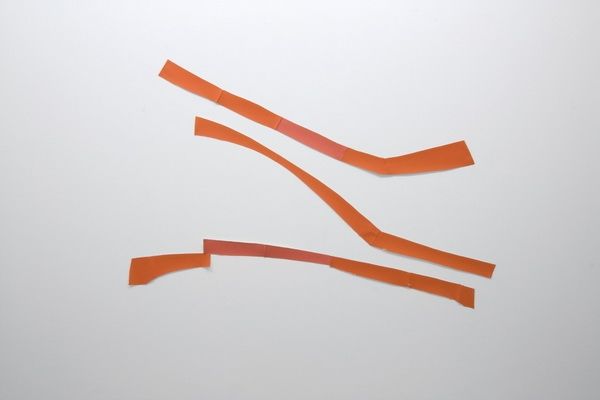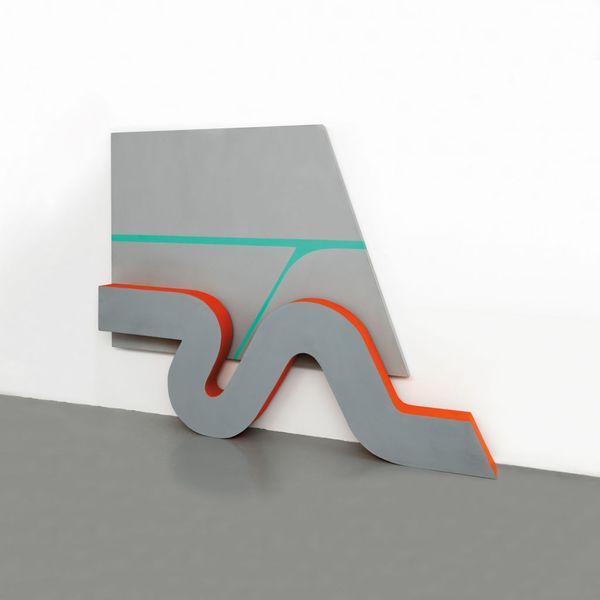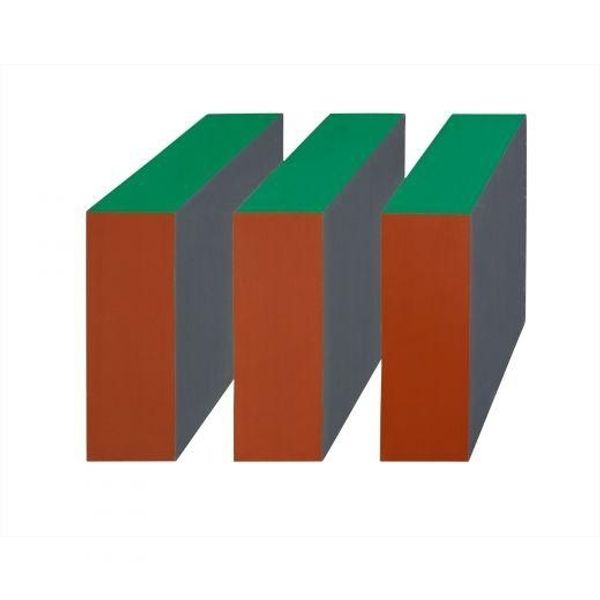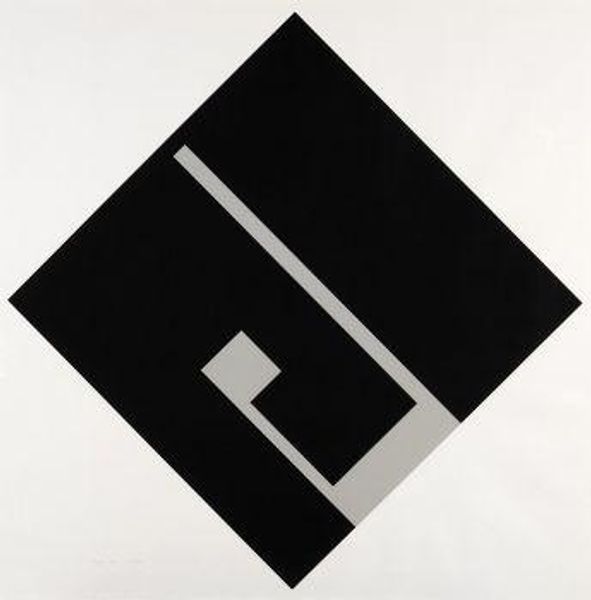
#
minimalism
#
geometric
#
abstraction
#
line
#
hard-edge-painting
Copyright: Ronald Davis,Fair Use
Curator: This is Ronald Davis' "Small Aqua," created in 1965. What's your immediate response? Editor: Clean and assertive, almost corporate. That stark aqua against the stark white reminds me of mid-century office spaces or a blueprint fragment. Curator: I see it as very much aligned with hard-edge painting, aiming for absolute clarity and geometric precision, striving to erase any trace of the artist's hand. But, consider that '65 sits squarely within rising Civil Rights movements. Editor: Are you suggesting this seemingly detached abstraction reflects a desire for clean, unwavering principles in a period defined by socio-political struggles? Curator: Perhaps. A quest for a more 'pure' society as filtered through abstract shapes. Color can often represent ideas; aqua could represent the pursuit of clean water as justice and accessibility, but at a remove, in coded language. Editor: You know, I immediately flashed back to the Bauhaus era, this feels to me a sort of echo, if slightly louder, as a memory. It's also calling out industrial precision—lines, shapes—building blocks from this era but pared down to the essential. Curator: Right, you are pointing at historical symbolism. Its pared-down nature aligns with Minimalism and a desire for reduction that permeates much of postwar art, where it rejects Abstract Expressionism. However, Davis still relies heavily on this relationship between the work, space and viewer, inviting them to create personal narratives and read emotional states into his artwork, that would otherwise, it would seem, try to negate those states. Editor: Precisely! The lines lead my eye and it asks if there might not also be tension and release here. It feels as though the lines might break away, a building, but in distress, from the weight it bears as it is so deliberately alone on this plain of the canvas. Curator: Interesting. So you see a visual representation of precariousness despite its obvious simplicity? That reading, and that tension, I believe gives "Small Aqua" it's longevity and continued impact. Editor: Yes, I think Davis successfully encoded quite a potent legacy within what might initially strike one as a clinical form.
Comments
No comments
Be the first to comment and join the conversation on the ultimate creative platform.













